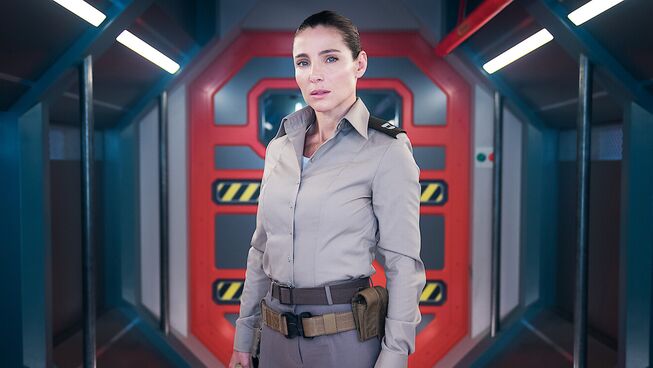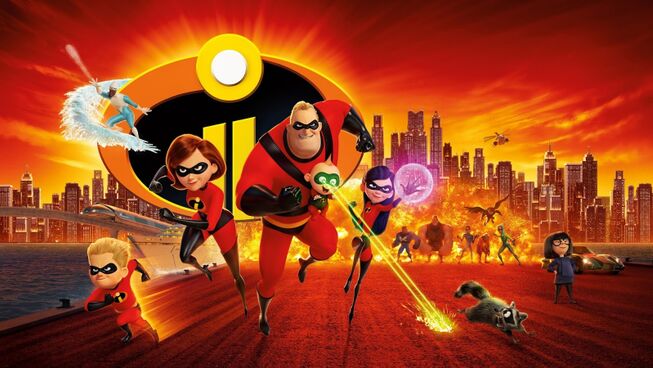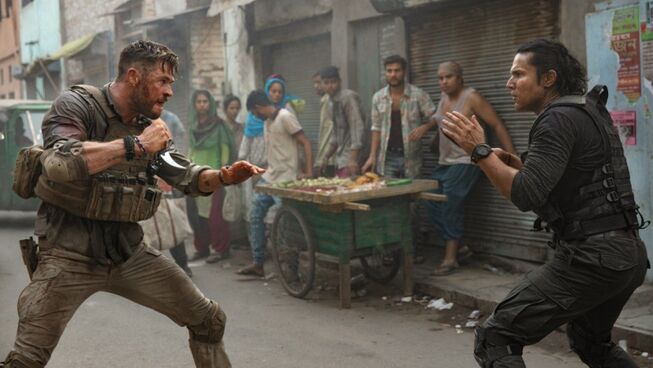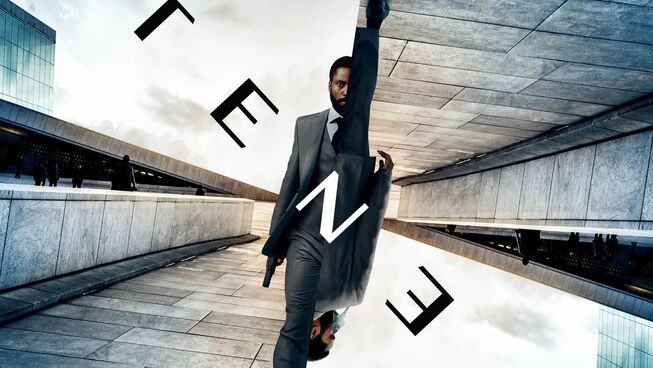
1.5 out of 5 stars
When you read Matthew Reilly’s novels, you can see that he has aspirations to be Australia’s answer to Michael Crichton or Tom Clancy. He has a heart for adventure and has managed to establish his influence worldwide. He wanted to ensure that the right person would helm the project with his latest script. Netflix made that a reality by allowing the author to sit in the director’s chair. Then to have Chris Hemsworth as a producer and his wife, Elsa Pataky, in the lead role, things look like they have the action-adventure pedigree it needs.
The Spanish-born actress plays Captain JJ Collins, assigned to the top-secret Interceptor base. This man-made island is one of the installations established by the United States military to protect against any nuclear missile launch from Asia. Even though it is a valuable asset to America, the assignment is considered a career-ending posting. She knows that the role was given to her after a sting operation involving a three-star general that she played a central role in at the Pentagon. Yet, the captain does not have time to brood as the base is attacked within moments of her arrival.
The majority of the soldiers assigned to the station were killed by a group of terrorists led by former US military intelligence officer, Alexander Kessel (Luke Bracey). Captain Collins is left isolated in the central command centre with only a few soldiers and weapons to hold the band of mercenaries off. She must use her tactical training and clever mind games to hold the station long enough for the arrival of a Navy Seal team that will assist her. This leads to extensive banter with Kessel that exposes his diabolical plan and the motivation to keep him at bay as long as possible.
If this film had been released in the 1980’s, Reilly would possibly have a hit on his hands. The screenplay, dialogue and characters all harken back to a different era in cinema while bringing back memories of days gone by. Still, this is 2022, and the expectation of action films has changed throughout the decades. What used to be excused by audiences is harder for modern viewers to stomach. They find it harder to accept in this hyper-attentive era where viewers are aware of military protocol, hidden political agendas, and bad acting. Matthew Reilly should be acknowledged for getting this whole project in under 15 million dollars, but this might be one thing amongst many that make this film a bit of a debacle.
One key element we can learn from The Incredibles is that monologuing is the determinant of the villain. Bracey not only monologues ad nauseam, but he is joined by Pataky for so many unnecessary series of unrealistic banter that becomes laughable after time. Yet, this is not the weakest aspect of this film. That weight is squarely placed on the shoulders of the lead actress. Elsa Pataky struggles to make this unlikely scenario believable, especially when she tries to lay down the foul language. Each time she attempts to curse, she seems to hesitate to see whether her children are in the room. This, along with the inability to be convincing as an intense military officer, makes this scenario less plausible with each line of dialogue. Add on some of the less-than-convincing visual effects in recent memory and this proves that it might not even have been a good option in the 80s.
Matthew Reilly is a respected author and this was an admirable choice for his directing debut. Still, Interceptor failed to even be a decent action film for Netflix, even with its highs and lows in developing content. At least it will have a home for some time and may find an audience amongst the vast number of options on the streaming service.
Reel Dialogue: CPX / Life & Faith: On Terror
Our friends at the Centre for Public Christianity look at how terrorism affects people in our everyday lives.
One of the defining narratives of the twenty-first century is the threat of global terrorism. It dominates the news cycle and is one of our society’s greatest fears.
According to a recent Pew study, Australians consider the Islamic State (ISIS) the global threat they are most concerned about. 69 % of people responded that they were “very concerned” about ISIS, ahead of climate change and the economy.
This response means that terrorism isn’t a vague global threat that we perceive from afar – it’s real, frightening and near for most Australians.
Listen in to this great discussion between Simon Smart, Natasha Moore, Richard Shumack, Professor Greg Barton, and Leisa Aitken that goes straight to the heart of the critical themes of Interceptor:
Terrorism, religion and how these things impact our everyday lives.






